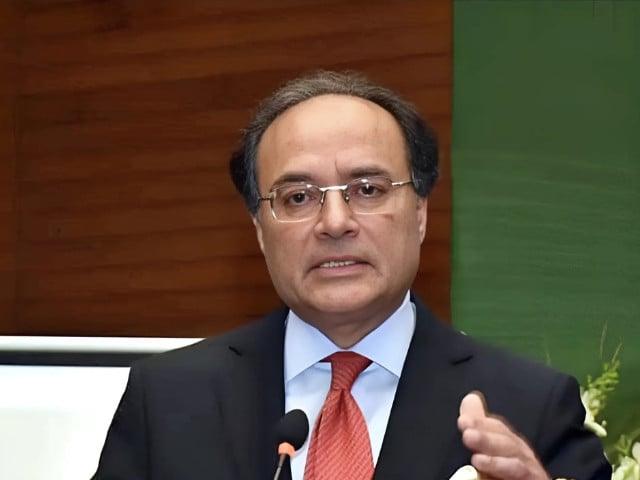The Minister of Finance, Muhammad Aurengzeb, has declared that there has been a significant reduction in interest rates and, in his opinion, there is room for greater reduction.
At a press conference held in Islamabad, he said that economic stability in the country had been achieved, which is crucial for economic development.
He also pointed out significant improvements on the external front, and the remittances are expected to exceed 36 billion dollars this year.
The finance minister mentioned that exports are also increasing, already the end of June, the country’s foreign exchange reserves will reach $ 13 billion.
He added that there are no difficulties in opening credit letters (LCS) or transferring profits from companies abroad. In the domestic front, inflation has decreased significantly.
Muhammad Aurengzeb also said that inflation reduction should be transmitted to the public, and the Economic Coordination Committee (ECC) is taking measures to address inflation.
The ECC has been closely monitoring inflation and implemented new measures to control it.
He also commented on the significant reduction in interest rates, stating that there is still room for greater reduction.
PWC reports and overseas chamber of commerce show greater investor confidence, and local investors also make investments and the stock market seeing an increase in investment.
The finance minister reported that purchases were made worth RS870 billion during Eidull Fitr, compared to RS720 billion last year.
He highlighted an increase of 14% in cement production and a 40% increase in car sales, together with a 30% increase in motorcycle sales during the first half of the year.
With respect to the International Monetary Fund (IMF), Muhammad Aurengzeb confirmed that an agreement had been reached at the personnel level, and Pakistan had achieved the structural reference points of the IMF.
He pointed out that this is the first time that Pakistan met with these reference points, which included steps for national fiscal agreements and the collection of agricultural income taxes.
The Minister of Finance also mentioned that for the first time, the provinces had taken measures to meet the objectives, and expressed the hope that the IMF Executive Board will soon approve the second section of one billion dollars.
In climate change, he declared that an agreement with the IMF had been reached, and the funds will be disbursed in phases as Pakistan meets his climate change goals.
He stressed that for the final program of the IMF, the complete implementation of structural reforms is essential. Economic stability has already been achieved, but now the approach is to maintain and advance it.
Muhammad Aurengzeb shared that the relationship imposed on GDP had increased to 10.8% and tax collection was being improving.
He pointed out the benefits of the digitalization of the Federal Income Board (FBR), and mentioned that the monitoring and traces system had been completely implemented for sugar, fertilizers and tobacco. However, its cement implementation is still pending.
The Minister of Finance concluded by announcing that a system will be introduced in the next fiscal year allowing salaried persons to directly pay their income taxes, which facilitates the process.
Meanwhile, the IMF has sent a second diagnosis mission of corruption and governance to Pakistan with a few months of difference to have in -depth commitments with more than 30 departments and institutions, including registrars of the Supreme Court of Pakistan (SCP) and the Court of Responsibility.
The mission, which began its interactions on Thursday, will remain in the country until April 14, according to the Pakistani authorities.
The IMF response by launching the second diagnosis mission of corruption and governance since February was expected to the presentation of this story.




